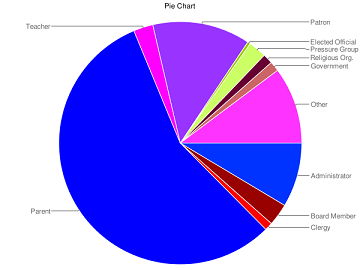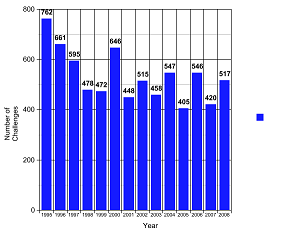Wednesday, 30 September 2009
08:50 AM
The stererotype of the librarian is often as either meek or as a stern shusher of patrons who just wanna have fun. (Marian the Librarian) As for meek, I was early exposed to the elderly Mrs. Clark, who deftly maneuvered an eight-ton bookmobile around Aurora, CO, and who moreover could handle hordes of excited elementary students. No meek there. And as for the shushing, whether that ever was true, my latter-day experiences at the library, where they have vending machines (!!!), have long since corrected any such misunderstandings on my part.
A stereotype that might not often be associated with librarians is that of radical. And yet as a group, they most certainly are. Specifically, librarians as a group are radical about our right to read anything. As evidence for this, every year at this time we observe Banned Books Week, sponsored by (among others) the American Library Association.
When you think about it, libraries really are astonishing. Their charter is to open the world of information to anyone who wants it. Any information, free. In my experience, librarians take this charter very seriously. Read the preface of any non-fiction book, and odds are good that you will find an author's grateful acknowledgment of the tireless assistance provided by a librarian, whether it's at the Library of Congress or the town library in some hamlet. (These days, of course, being off the (physical) beaten track is no barrier to finding information through your library.)
The charter of libraries and librarians is to help patrons find information, not to judge whether the information is good or bad, useful or not, or -- here's the point where things get sticky -- harmful or not. You and I might disagree about whether we think a particular book, say, is good, or useful, or a pox on society. Libraries do not make that decision for us, nor do they, as much as possible, allow others to dictate these things.
Thus Banned Books Week, which reminds us that over the years, books such as The Great Gatsby, Beloved, Invisible Man, Gone with the Wind, Slaughterhouse-Five, The Jungle, A Clockwork Orange, and The Satatnic Verses have all been challenged or banned.
As part of Banned Books Week, the ALA posts information on its Web site about banned and challenged books. For example, if you're interested in why the books were challenged, there's a page that lists specifics for individual books. A page I found particularly interesting shows a set of charts that summarize who and when and why books have been challenged over time.
 
Last year, the librarian Jamie Larue blogged the story of a challenge to a book named Uncle Bobby's Wedding, which is a children's book about gay marriage. Surely the topic of gay marriage is not appropriate for a children's book, right? I urge you to read the blog entry, the comments, and the spillover into other blogs.
We cannot take for granted our unfettered access to information. The ALA doesn't, which is why they set aside a week to remind us that it is a never-ending discussion to determine who may read what, and that the library is in the middle of it all. As they quote on their site: If there is a bedrock principle underlying the First Amendment, it is that the government may not prohibit the expression of an idea simply because society finds the idea itself offensive or disagreeable.
--Supreme Court Justice William J. Brennan
[categories]
books
|
link
|